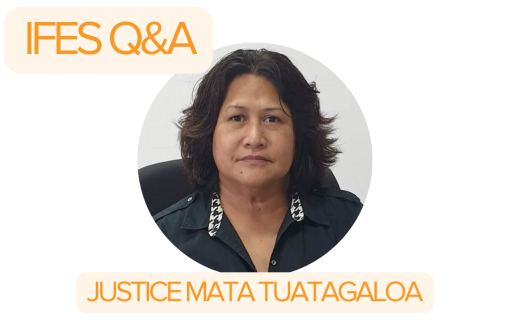Abuse of State Resources Research and Assessment Framework
The International Foundation for Electoral Systems (IFES) recently concluded a two-year Technical Leadership project examining the abuse of state resources (ASR) in election campaigns. This research initiative, led by the Center for Applied Research and Learning and funded by the United States Agency for International Development under the Global Elections and Political Transitions mechanism, focused on ASR (sometimes referred to as administrative resources) for the purpose of gaining an electoral advantage. The Abuse of State Resources Research and Assessment Framework: Guidelines for the Democracy and Governance Community of Practice is an abbreviated companion document to the complete Abuse of State Resources Research and Assessment Framework developed in this effort.
Both documents are based on in-depth, comparative analysis of laws and regulations that target ASR in election campaigns and the effectiveness of these provisions in deterring or remedying these abuses. In many countries, uses of state resources during electoral periods are not sufficiently regulated and enforcement of violations is weak or nonexistent due to deficits of political will or limited capacity of oversight institutions. As highlighted in an IFES publication, individuals and parties in power may capitalize on these gaps to marshal public goods – including state personnel, state funds and physical assets, and official government communications – in service of political campaigns.
Beyond undermining electoral competitiveness, another often-overlooked component of this abuse of power is the role elections play in cycles of entrenched corruption. Not only do abuses during the campaign period undermine competitiveness by conferring an unfair electoral advantage, they threaten the appropriate distribution of government services and do long-term damage to the legitimacy of governance institutions. This is because abuses do not stop after parties use the assistance of the state apparatus to win elections; corrupt politicians subsequently use their access to levers of the state to enrich themselves and distribute perks to supporters. The cycle of government personnel, media, and other resources being used in service of political campaigns is then likely to continue.
This ASR assessment tool focuses on legal and regulatory provisions specific to ASR, but it also delves into some other common areas of abuse (for example, government procurement and contracting, public works spending around elections, campaign finance, and vote buying). These guidelines were designed for use by international and domestic civil society actors, implementers, and advocates to evaluate the effectiveness of the ASR legal framework in a given country and develop additional tools for monitoring and advocacy. This shorter version of the tool will help these groups identify priority issues and vulnerabilities that they can use in developing their strategy for monitoring, addressing, and/or advocating for measures to mitigate ASR. Findings could also point to specific recommendations for improving transparency and enforcement surrounding ASR, including enhanced training programs, strengthened regulatory provisions, investments in investigative journalism, and increased transparency in public procurement.












